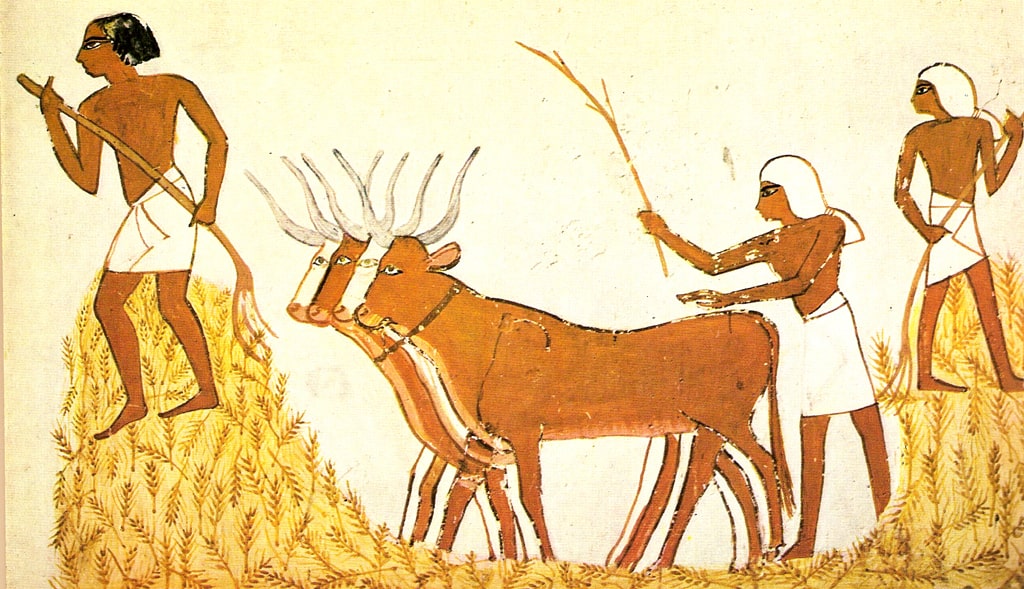
6 SEO Metaphors to Enhance your SEO Understanding
Just like a picture is worth a thousand words, metaphors are pictures for our imagination. They demystify unfamiliar concepts by drawing parallels between what we already know and what we don’t — like a Rosetta stone for ideas. And in doing so, they paint a picture in the mind’s eye that we can easily reference (and understand) whenever our mind is in unfamiliar territory.
SEO means many different things to so many different people in many different ways. To some, it’s a way to generate leads and sales. To others, it’s a way to close competitive gaps. And to others, still, it’s a way to build a sustainable marketing strategy.
But what is SEO? How does it work? And what does it mean for your bottom line?
1. SEO is greater than the sum of its parts
There are many moving parts to SEO: indexation, content, keywords, backlinks, structured data, expertise, authority, trust, and the list goes on. Each of them are just a drop in the bucket of rankings, and when they all come together, your cup (or bucket, in this case) shall runneth over.
In other words, each moving part will help you increase your rankings, but when you bring them all together, you build a machine that amplifies those results many times over.
For instance, content is a big part of SEO, and you can’t rank without it. But when that content is keyword targeted, marked up for structured data, answers FAQs, and generates backlinks, that content will not only rank competitively, but will elevate your site’s rankings across the board by increasing its Expertise, Authority, and Trust (E-A-T).
The point is that SEO offers economies of scope that generate an increasing return on investment with each additional input. The more diversified and robust your SEO strategy is, the more amplified the results will be.
2. SEO is death by 1000 cuts
SEO is not something you set and forget. It’s something that requires consistency and sustained effort.
In other words, SEO requires that you keep showing up and putting in the work.
For instance, you don’t outrank the competition by launching a more optimized site with more content, and never giving it another thought. Your competition are living, breathing organisms that continue to exist, adapt, and grow in your shared ranking ecosystem. And if you’re not continually trimming away fat and dead weight, you won’t be able to keep up with or rise above them in the SERPs.
3. SEO is farming, not hunting
Just as SEO requires sustained consistency, it is also a medium- to long-term strategy. It takes time to establish E-A-T, and the sooner you start planting those seeds, the sooner you’ll be able to reap their harvest.
Because SEO allows you to build organic rankings where you’re not paying for each click, it helps you build equity that decreases your CPC and CPA over time.

Indeed, just consider how farming communities have out-performed hunter-gatherer ones throughout history. With a bit of insight and planning, SEO allows you to increase output and mitigate medium- to long-term uncertainty.
4. SEO is a marathon, not a sprint
Just as it takes time to build equity (i.e. E-A-T), it’s also important that you pace yourself. SEO is a marathon, after all, and while you want to start off strong, you also don’t want to go so hard and fast at the outset that you fall behind later in the race, and end up limping across the finish line behind everyone else.
Let’s say you have the budget to do X-pieces over a 12 month timeline. The sooner that content is published, the sooner it can be indexed (and added to your SEO machine), and the sooner it can start building equity and rankings for you.

If you publish all your content in Q1 to maximize its exposure and indexation time, you’ll have nothing left for Q2-Q4 — and will fail to sustain your E-A-T throughout the year. It would be like hitting a growth spurt early, and then stopping while the competition continues to adapt and evolve throughout the rest of the year. All that content would ripen before you get a chance to eat it — like the banana or avocado sitting in your marketing fruit basket.
Conversely, if you space that content evenly through the year, much of it wouldn’t have a chance to rank and produce results before the year is over. And that would be like sewing your seeds too late in the season, or leaving your harvest too long in the fields.
So you want to pace yourself and find a balanced middle-ground. One that propels you off of the starting line, but leaves you with the endurance to cross the finish line with more of the competition behind you than ahead.
5. SEO is the forest from the trees
We all know our respective industries inside out. We know our value-props and our USPs, and we can describe our products and services with the utmost eloquence and precision. But our target audience isn’t always as sophisticated as we are, and when they go looking for the products/services we offer, they often use different language than we do.
SEO lets us see the forest from the trees.

Through keyword data, we can learn how customers are actually searching for the products and services we offer, and align our strategy + messaging with that intent. It allows us to connect with an audience that’s already one step down the conversion funnel.
6. SEO is infrastructure
Just as SEO is something that generates an increasing return on investment over time, it’s part of your marketing infrastructure. It’s a stable foundation on which to build your business, but like any piece of critical infrastructure, it requires proper planning, sufficient investment, and ongoing maintenance.
What counts as adequate planning, of course, will depend largely on your business’s goals and available resources. Suffice it to say, however, that the ROI of even the most modest SEO efforts will vastly outweigh the upfront costs of that initial investment — especially in the long-run.
